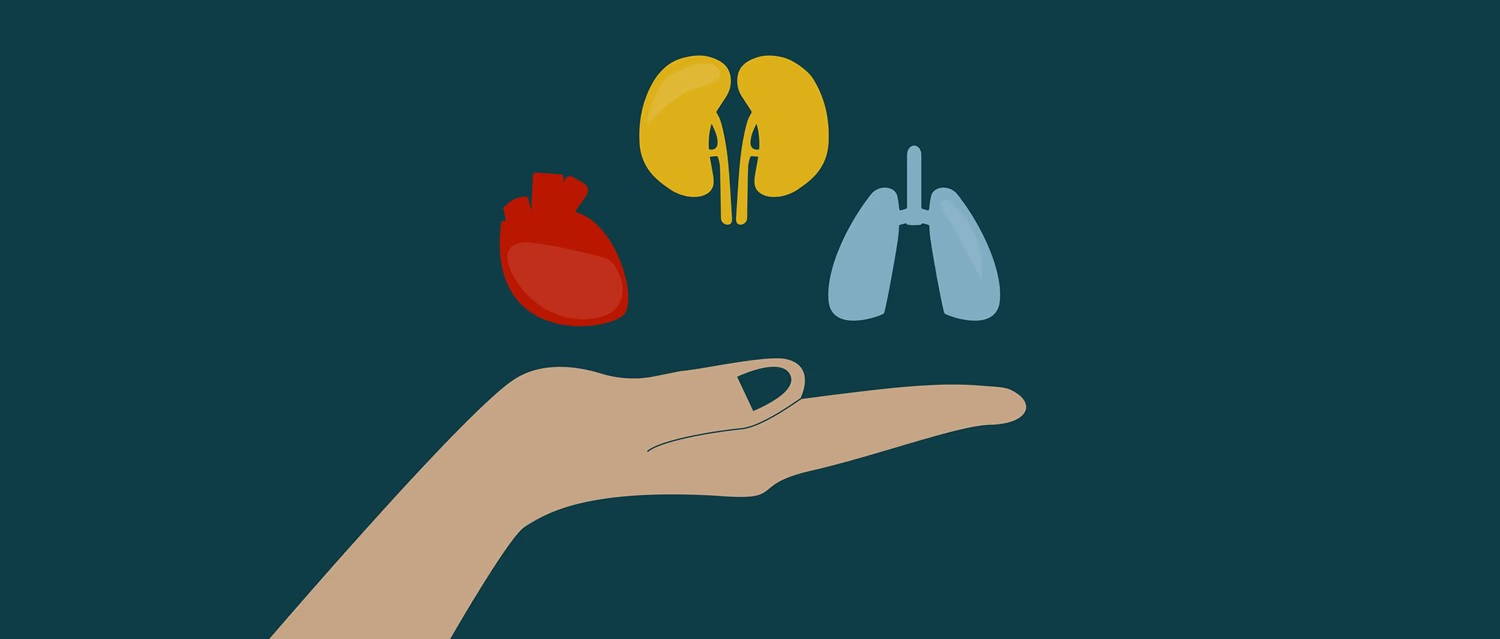
What it's like to be on the organ transplant waiting list
Peer reviewed by Dr Sarah Jarvis MBE, FRCGPLast updated by Abi MillarLast updated 31 Aug 2018
Lisa Ebdon, a recruiter from Warwickshire, does not come across as seriously ill. She goes to work, walks the dog and enjoys running with her daughter Lily. As she explains, it's only when she takes off her glasses that most people realise what she's dealing with.
"People are shocked and surprised when they find out that I need a liver transplant. Then I take off my glasses and they see the 'yellows' of my eyes," she says.
In this article:
Lisa has primary biliary cholangitis, a rare autoimmune disease of the liver, with symptoms including jaundice and itching. She was first diagnosed 11 years ago, following the birth of her daughter, and until very recently was able to manage the illness through medication.
Unfortunately, her condition deteriorated, and she was placed on the urgent waiting list for a liver transplant in July 2018.
"I didn't want to tell Lily anything about the test results until I was listed because it was all so up in the air," she says. "But she has seen me take tablets all my life and has reacted really well; she has just dealt with it."
Continue reading below
The donor shortage
Lisa is one of around 6,000 people currently on the UK Transplant Waiting List. While the number of transplants is increasing - more took place in 2017/18 than ever before - there is still an urgent need for more donors. Last year, 411 people died while waiting for a transplant.
According to Anthony Clarkson, interim director of organ donation and transplantation for NHS Blood and Transplant, many of those lives would have been saved if more people agreed to donate.
"For people on the transplant waiting list, all other options are exhausted, and a lifesaving transplant is their only hope," he explains. "They are relying on the incredible generosity of a family supporting organ donation at a time of grief by saying 'yes' to organ donation."
While these people have different symptoms depending on their illness, all experience the tension of waiting to see if they'll receive a call. Some will get a transplant within a few hours, but others can wait for decades.
NHS Blood and Transplant manages the NHS Organ Donor Register and the National Transplant Register, allowing them to match the appropriate donors to people waiting for a transplant. In most instances, donation takes place after the donor's death, although there are some circumstances in which it's possible to donate while living.
How to support organ donation
Since your organs and tissues can only be used with your consent, there are a couple of steps you should follow if you wish to donate. Firstly, you can add your name to the NHS Organ Donor Register - a simple process that takes no more than two minutes to complete. Secondly, tell a relative or close friend about your wishes.
"If you want to be an organ donor, your family's support is needed for organ donation to go ahead. Telling your family what you want makes things easier at a difficult time," says Clarkson.
Although there is a shortage of donors from all backgrounds, there is a particular need for more black and Asian people to support donation.
"Organs are matched by blood group and tissue type and people of the same ethnic background are more likely to be a match. One in five people who died on the Transplant Waiting List last year were from a black, Asian or ethnic minority background," says Clarkson.
There is also a need for older donors. Of the people who joined the NHS Organ Donor Register last year, just 27% were aged over 50. However, of the people who die in circumstances where they can be referred for donation, 72% belong to this age bracket.
Continue reading below
Saving and changing lives
Currently, the UK government is considering 'opt-out' legislation for organ donation. This would mean everyone would be considered a potential donor, unless they have specifically stated otherwise or belong to one of the excluded groups. The rationale is clear - despite overwhelming public support for organ donation (82% say they would consider donating their organs), only 37% of the UK population have registered.
The new system, which would resemble the one already in place in Wales, could be rolled out by April 2020.
"We support all activity that increases the availability of donated organs for life-saving transplants and we welcome the Government's commitment to organ donation," says Clarkson. "NHS Blood and Transplant will work with the Government to ensure that any changes are implemented successfully. Whatever system is in place, it will always be important that people talk to their family about organ donation."
Lisa, who has the O positive blood group, has not had any transplant calls so far. However, she is staying positive at an undeniably trying time.
"I was fine, much stronger mentally, after the second round of assessments, when you speak to people in more detail about what all the results mean," she says.
As stories like hers make clear, joining the organ donor register is far from a trivial decision. In fact, by donating your organs when you die, you could save or transform up to nine people's lives - and help even more people by donating tissue.
"We just ask people to ask themselves this question: If you would take an organ if you needed one, shouldn't you be prepared to donate?" says Clarkson.
Article History
The information on this page is written and peer reviewed by qualified clinicians.
31 Aug 2018 | Latest version
31 Aug 2018 | Originally published

Feeling unwell?
Assess your symptoms online for free